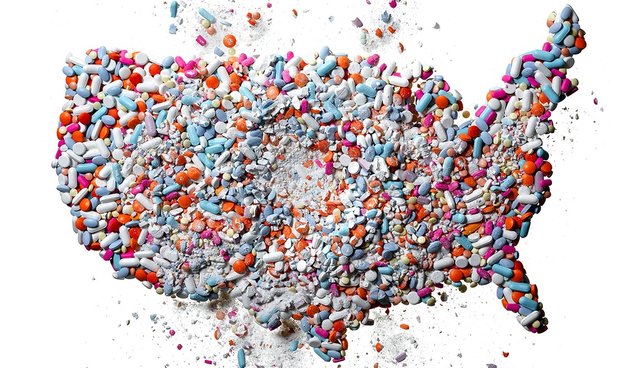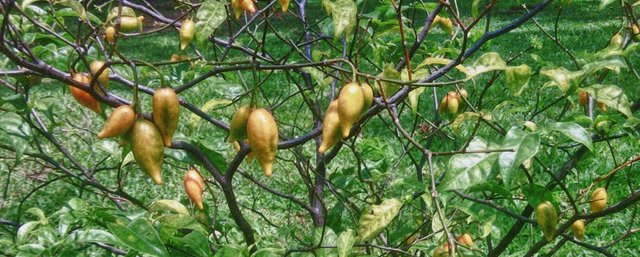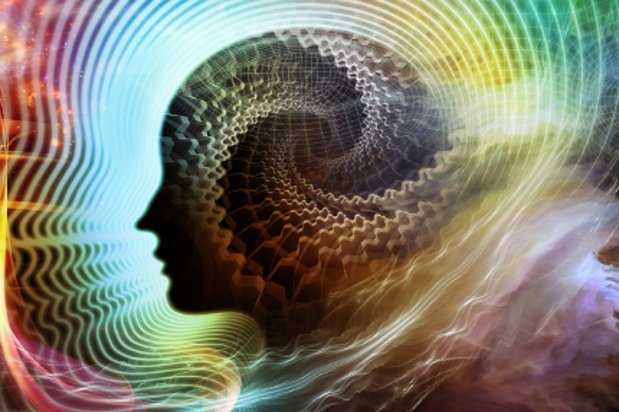The Cure for Opioid Addiction is Illegal

Opioid overdose deaths are climbing sharply in the United States. In 1999, a 'mere' 4,000 people died of opioid overdose. By 2010, that number had quadrupled to 16,000. In 2016, opioids killed 64,000 Americans in 2016.
President Trump recently declared the opioid epidemic a national emergency.
So formidable is the opioid epidemic, life expectancy in the US has decreased the past two years. Drug overdose is now the leading cause of death for Americans under 50. An estimated 2.6 million people in the United States have a problem with opioids. See here for a comprehensive breakdown of all the whats and whys regarding this national health crisis.

Whether because of apathy, lack of access, or fear of going through withdrawal symptoms, only ten percent of those addicted to opioids actually seek out treatment. For those who do, the road to recovery is steep. Very steep.
Conventional treatment traditionally involves a thirty, sixty, or ninety-day detox supervised detox. Dropout rates at such facilities can be as high as seventy-five percent. And even among the most motivated, those who brave the withdrawals and complete lengthy programs...relapse rates approach ninety percent after six months. The percent of those with an opioid dependency who truly kick the habit is vanishingly, depressingly small.
Given such a bleak outlook, opioid maintenance therapies are now the gold standard of care. This involves taking prescription opioids (buprenorphine or methadone) under controlled settings in order to reduce the risks associated with more dangerous types of opioid use. And, for those who stick to the treatment, such protocols can indeed reduce mortality rates by as much as half. But, roughly forty percent do not stick to the therapy and revert back to illicit use of their opioid of choice.
But worse still, these opioid maintenance drugs themselves are not without risk themselves—methadone was responsible for a full twenty-three percent of opioid overdoses in 2014. Hence, such treatments are intended to eventually be tapered off, however, relapse rates quickly reach over ninety percent soon after the tapering off phase begins.
But, as it happens, there is a little-known cure for opioid-addiction. And, as it happens, it's illegal. (There is, incidentally, an analogous situation in regard to PTSD).
That's right. The cure for opioid addiction—the solution to our national emergency—is illegal.
It’s called ibogaine. It’s a naturally occurring psychedelic alkaloid found in the root bark of iboga tree of Central African. While there are several ibogaine clinics in Mexico, Canada, and around the globe, ibogaine is a Schedule 1 Controlled Substance in the United States, meaning it is not legally available medically or otherwise (several states, however, have recently attempted to make inroads here).

“Cure” is a loaded word, particularly in this context. Here is what is meant by it: after someone who is addict to opioids takes ibogaine, they are simply no longer physiologically dependent on opioids. No nasty withdrawals, no cravings. Hence, ibogaine is referred to as an "addiction interrupter."
This does not mean, however, that the individual will never use opioids again.
Drug addiction is a complex thing. But, it can roughly be divided between it's physiological and psychological components. Ibogaine, as already suggested, effectively eliminates the former; the user is simply no longer physically dependent. Naturally, this is of enormous value. Opioid withdrawal can be hellish, and most would-be detoxers succumb to the severe cravings associated with the roughly week-long painful withdrawal period. Ibogaine affords the user a window of opportunity—pain- and craving-free—to get his psyche oriented in a drug-free direction.

But ibogaine's anti-addiction utility is not confined to its ability to "reset" the"hardware" (the brain and nervous system); its therapeutic effect on the "software" (ego, personality) is similarly profound.
Many consider an ibogaine "flood" (a full, therapeutic-sized dosing) to be among the most intense psychedelic experiences one can have, given its length and strong visionary quality. The experience can last upwards of twelve hours, with a four- to six-hour peak that is often described as "oneirogenic" (literally, " dream causing" [waking, in this case]).

There are two features of the ibogaine experience that appear nearly universal. This includes a "life review," where one's misdeeds are paraded before the user and he is made acutely aware of the deleterious effect these have on his own life and those around him. Also, the user typically experiences a sense of being in dialogue with a wise other.
Author Daniel Pinchbeck describes the prototypical experience in his essay, Ten Years of Therapy in One Night:
Part of my trip took the form of an interview that was almost journalistic. I could ask direct questions of “Mr. Iboga” and receive answers that were like emphatic, telegraphed shouts inside my head...I asked Mr. Iboga what iboga was. I was told simply: “PRIMORDIAL WISDOM TEACHER OF HUMANITY!” Later, my personal faults and lazy, decadent habits were replayed for me in detail. When I asked what I should do, the answer was stern and paternal: “GET IT STRAIGHT NOW!” ...When other faults were shown to me that seemed rather petty and insignificant, I tried to protest that some of these things really didn’t matter. Iboga would have none of it, insisting: “EVERYTHING MATTERS!” Iboga told me that I had no idea of the potential significance of even the smallest actions...
Pinchbeck relays a glimpse into the experience of his fellow traveler:
His faults were also paraded in front of him in repetitive loops that seemed endless. At one point, I heard him scream out, “No! No! No!” He saw a possible future for himself if he went back on heroin — becoming a dishwasher, sinking into dissolute old age with a bad back and paunch. He asked what he could do to help save the world.
Like Pinchbeck, many users describe iboga as a "stern father." Yet, the experience often concludes on a message of hope, and users generally report a profound and lasting sense of peace and hope, and a keen appreciation for the preciousness of life. As Pinchbeck continues:
Thinking of my girlfriend and our child, I realized that I was lucky—“YOU ARE LUCKY!” Iboga echoed. I felt tremendous, tearful gratitude that I had been given a chance to live and love, to explore and try to understand so many things.
And, finally, when he asked "Mr. Iboga" about the uncertain, seemingly tumultuous future of humanity:
The answer I received was startling — and reassuring: “EVERYTHING IS SAFE IN GOD’S HANDS!” This message has stayed with me; it has alleviated much paranoia and anxiety....
It is not difficult to see how such an experience can have a significant therapeutic effect. As one study reports: "common themes emerging from the interpretation of the experience included a sense of insight into destructive behaviors, a felt need to become abstinent, the experience of having been cleansed, healed, and reborn, and the sense of having a second chance at life." And, while ibogaine has become principally associated with opioids because of its unique ability to break physiological opioid dependence, it is being successfully used to treat all manner of addictions and a host of psychological woes and disorders.

As stated above, it is estimated only ten percent of those struggling with opioid dependency seek help. How much greater would that number be if they were able to legally avail themselves of this profound, addiction-interrupting tool?
Recall the best conventional option for those aiming to kick an opioid addiction is a thirty- or ninety-day stay at a rehab facility. This, of course, is prohibitively expensive or otherwise infeasible for most. For those who do go, detox entails an oft excruciating roughly week-long withdrawal period. Most drop out. Of those who complete such programs, nearly all will be back to using within months if not days.
By stark contrast, ibogaine clinics, who typically treat patients for a mere five or seven days, offer a pain-free detox and claim success rates of around seventy percent. (One recent study found, after a single ibogaine session, fifty-four percent of participants remained abstinent after a year; another, found fifty percent remained abstinent after a year).
In a word, conventional rehab facilities versus ibogaine clinics amounts to the lengthy, painful, expensive, and ineffectual versus the relatively quick, painless, cheap, and highly successful, respectively.
Kicking an opioid habit is a tall order. Ibogaine turns the nearly impossible into the highly doable.

Ibogaine should not be taken outside medical supervision. While generally considered safe, there are several important contraindications for use, and a handful of ibogaine-associated deaths have been reported. Learn more about the safety of ibogaine here.
Resteemed by @resteembot! Good Luck!
The resteem was paid by @artisticscreech
Check @resteembot's introduction post or the other great posts I already resteemed.
This was very well written and I agree that this prohibition is absurd (really all prohibition is absurd but that is a broader and more contentious topic).
It's always nice to see this type of stuff show up in the psychedelic tag so I went ahead and had this resteemed through a couple of services.
Thank you!!
Your Post Has Been Featured on @Resteemable!
Feature any Steemit post using resteemit.com!
How It Works:
1. Take Any Steemit URL
2. Erase
https://3. Type
reGet Featured Instantly & Featured Posts are voted every 2.4hrs
Join the Curation Team Here | Vote Resteemable for Witness
Great article.. glad i found you! Do you know anything about some of the pricing of these clinics, particularly in Mexico? And if anyone is using Ibogain to kick less intense but also dangerous addictions like tobacco?
Thanks!
$5k-7k is my understanding.
Yes, no clinical trials that I am aware, but all kinds of anecdotes about kicking all kinds of habits.
Thanks for the comment.
wow that's a lot
What a thorough post on a very important topic! Really well done!
It's past payout -- darn that 7-day system, when it comes to posts of lasting value!